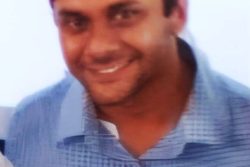Dear Editor,
The security and first line of defence of a family are the very members of that family, buffered by the culture and individual and collective consciousness of that unit. In fact, history tells us that as far back as 3000 bc, the head of a family was also the head of the security arrangement in that family and all able-bodied members of the family were its defenders. The same holds good for any organisation: a club, a business, a church, etc.
In some countries a Neighbourhood Watch, comprising residents within laid-out wards, is in place and serves as the eyes and ears of that ward as it relates to criminal and/or other activities which threaten the well-being of the ward and, by extension, the wider community.
This thinking was the premise on which late the Commissioner of Police Henry Fraser introduced the formal community policing movement in Guyana in 1976. Community policing in Guyana had relevance in 1976, it has relevance today and it will have relevance 20 years from now.
Sadly, whether because of malaise on the part of residents in communities, resistance from certain formal law enforcement agencies, incompetence by support agencies/personnel, or all of these, the community policing movement in our nation is struggling. Perhaps the foremost impediment is the community itself.
Did it have to take the recent gruesome murders at Bush Lot, West Coast Berbice, for some residents to suggest the re-formation of the policing group in the community? Isn’t this locking the gate after the horse has left the stable? I am reminded of an adage coined by a life insurance salesman: Not many wives like life insurance, but all widows do. Community policing is a kind of indirect life insurance.
With all the resources being made available to community policing by the past and current administrations, why has the movement not evidenced greater traction in communities? My own experience advises me that it is easier to find residents willing to break the law than to find leaders willing to lead a good cause. And when the rarity occurs, those willing to give it a shot are quickly stigmatised by the very communities they are trying to protect.
This is Guyana’s reality, a reality where the many lack the fortitude to deter the few from terrorising the many ‒ in our neighbourhoods, in our communities and in our country. We want somebody else to do it for us.
My appeal to fellow Guyanese: Form community policing groups in your areas and get involved.
You are the first person to defend yourself!
Yours faithfully,
T Jadunauth









